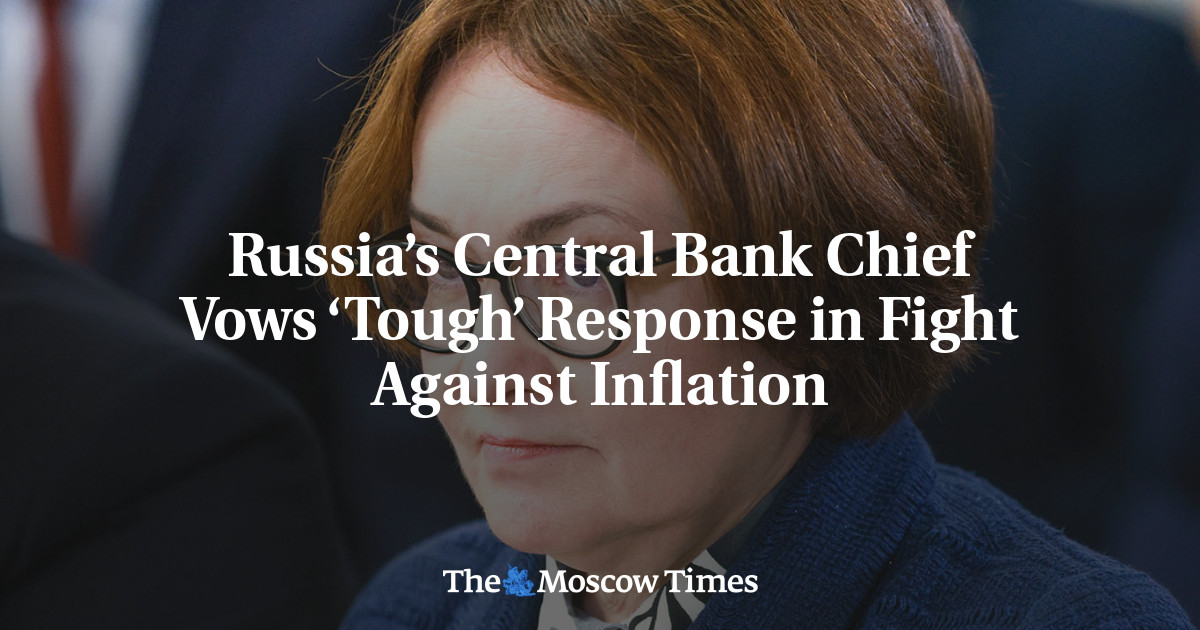
Russian Central Bank Governor Elvira Nabiullina warned Thursday that “more drastic changes” in monetary policy may be needed as the country’s rumbling war economy drives inflation far above target levels.
Nabiullina’s comments, made to a group of State Duma lawmakers, come a week after the Central Bank hiked its key rate to a record-high 21%, taking it even further than the emergency rate of 20% initially introduced after the February 2022 invasion of Ukraine.
“With high inflation, economic growth cannot be sustainable,” the Central Bank head told lawmakers. “It’s a dangerous illusion to think that increased inflation can be reliably kept within a certain zone.”
“That’s why we’re not planning to take any shortcuts as we move toward our 4% target,” she added, defending the regulator’s tight monetary policy as an “inevitable reaction to what’s happening in the economy.”
Last week Friday, Russia’s Central Bank said seasonally adjusted price growth in September rose to 9.8% year-on-year from 7.5% in August. Core inflation, meanwhile, increased to 9.1% from 7.7% over the same period.
Central Bank authorities updated their annual inflation forecast to 8-8.5% by the end of 2024. That adjustment is significantly higher than their earlier forecast of 6.5-7% inflation for this year.
“In present conditions, a tight monetary policy doesn’t contradict all the economic development tasks the government is currently working on,” Nabiullina said. “It protects salaries, pensions, benefits and people’s savings from rising prices.”
Russia has faced volatile prices since President Vladimir Putin sent troops into Ukraine in February 2022, triggering a barrage of Western sanctions and strict countermeasures in a bid to stabilize the economy. So, too, has defense spending soared as Moscow ramps up arms production for the war in Ukraine.
Russia’s draft budget for 2025, passed by lawmakers in its first reading last week, allocates around one-third of total state spending — or 6.3% of GDP — to the military, a figure unprecedented since the days of the Cold War.
Given that so much of the current spending is driven by the state, which is less responsive to higher borrowing costs, analysts fear that raising interest rates may not be an effective measure against inflation.
Nabiullina said Thursday that she believes interest rates remain a powerful instrument in policymakers’ toolkit, but emphasized current economic conditions meant that “more drastic changes are needed to make it work.”
Analysts have cautioned that Russia may be entering a period of “inflation without growth,” while also warning the economy is inching closer toward stagflation — when the economy grows slowly and prices shoot up.